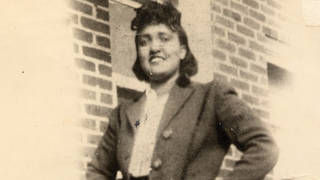Decades After Taking Henrietta Lacks's Cells Without Consent, Johns Hopkins Names Building After Her

Johns Hopkins University has announced plans to name a new research building after Henrietta Lacks, an African-American woman who permanently changed modern medicine nearly 70 years ago when it was discovered that her cells could live forever. These "immortal cells" have helped scientists produce remedies for numerous diseases, including the first polio vaccine, that have saved hundreds of thousands of lives. But Lacks's cells were taken without her consent when she was a patient at Johns Hopkins University Hospital in 1951. For decades, the woman whose cells would transform modern medicine was unknown. Instead, her cells were simply known as "HeLa"-the first two letters of Henrietta Lacks's first and last name. We speak with Rebecca Skloot, author of the best-selling book "The Immortal Life of Henrietta Lacks," and Jeri Lacks Whye, the granddaughter of Henrietta Lacks.